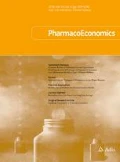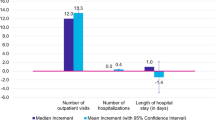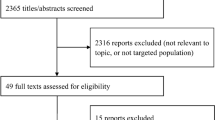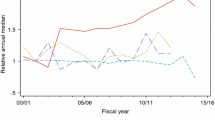Abstract
The anogenital human papillomavirus (HPV) is estimated to be the most commonly occurring sexually transmitted infection in the US. Comprehensive estimates of the annual economic burden associated with the prevention and treatment of anogenital HPV-related disease in the US population are currently unavailable. The purpose of this paper is to (i) outline an analytic framework from which to estimate the annual economic burden of preventing and treating anogenital HPV-related disease in the US; (ii) review available US literature concerning the annual economic burden of HPV; and (iii) highlight gaps in current knowledge where further study is particularly warranted.
Among eight US studies identified that describe the annual economic burden pertaining to one or more aspects of anogenital HPV-related disease, three met the review eligibility criteria (published between 1990 and 2004, examined multiple facets of annual anogenital HPV-related economic burden, and clearly articulated the data and methods used in the estimation process). All costs were adjusted to 2004 $US.
Estimates of the annual direct medical costs associated with cervical cancer were comparable across studies (range $US300–400 million). In contrast, there was a wide range across studies for estimates of the annual direct medical costs associated with cervical intraepithelial neoplasia (range $US700 million–$US2.3 billion). Only one study reported direct medical costs for anogenital warts ($US200 million) and routine cervical cancer screening ($US2.3 billion). No studies examined direct medical costs attributable to HPV-related anal, penile, vaginal or vulvar cancers, or the work and productivity losses resulting from time spent receiving medical care, morbidity or mortality.
Current economic burden estimates would suggest annual direct medical costs associated with the prevention and treatment of anogenital warts and cervical HPV-related disease of at least $US4 billion. This figure would likely rise to at least $US5 billion per year if direct medical costs associated with other disease entities caused by the sexual transmission of HPV were included, with further additions to the economic burden totalling in the billions of dollars if work and productivity losses were incorporated, a research priority for future studies.




Similar content being viewed by others
References
Cates W. Estimates of the incidence and prevalence of sexually transmitted diseases in the United States. American Social Health Association Panel. Sex Transm Dis 1999; 26 (4 Suppl.): S2–7
Koutsky L. Epidemiology of genital human papillomavirus infection. Am J Med 1997; 102 (5A): 3–8
Jemal A, Murray T, Ward E, et al. Cancer statistics, 2005. CA Cancer J Clin 2005; 55 (1): 10–30
Insinga RP, Dasbach EJ, Myers ER. The health and economic burden of genital warts in a set of private health plans in the United States. Clin Infect Dis 2003; 36 (11): 1397–403
Insinga RP, Glass AG, Rush BB. Diagnoses and outcomes in cervical cancer screening: a population-based study. Am J Obstet Gynecol 2004; 191 (1): 105–13
Clarke P, Ebel C, Carotti DN, et al. The psychosocial impact of human papillomavirus infection: implications for health care providers. Int J STD AIDS 1996; 7 (3): 197–200
Maw RD, Reitano M, Roy M. An international survey of patients with genital warts: perceptions regarding treatment and impact on lifestyle. Int J STD AIDS 1998; 9 (10): 571–8
Shinn E, Basen-Engquist K, Le T, et al. Distress after an abnormal Pap smear result: scale development and psychometric validation. Prev Med 2004; 39 (2): 404–12
Frisch M, Goodman MT. Human papillomavirus-associated carcinomas in Hawaii and the mainland US. Cancer 2000; 88 (6): 1464–9
The current status of development of prophylactic vaccines against human papillomavirus infection. Geneva, Switzerland: World Health Organization, 1999
Wiley DJ, Douglas J, Beutner K, et al. External genital warts: diagnosis, treatment, and prevention. Clin Infect Dis 2002; 35 Suppl. 2: S210–24
Chuang TY, Perry HO, Kurland LT, et al. Condyloma acuminatum in Rochester, Minn., 1950-1978: I. Epidemiology and clinical features. Arch Dermatol 1984; 120 (4): 469–75
Beutner KR, Wiley DJ, Douglas JM, et al. Genital warts and their treatment. Clin Infect Dis 1999; 28 Suppl. 1: S37–56
Rice DP. Cost of illness studies: what is good about them? Inj Prev 2000; 6 (3): 177–9
Das GR, Guest JF. Annual cost of bipolar disorder to UK society. Br J Psychiatry 2002; 180: 227–33
Gross CP, Anderson GF, Powe NR. The relation between funding by the National Institutes of Health and the burden of disease. N Engl J Med 1999; 340 (24): 1881–7
Bigal ME, Rapoport AM, Bordini CA, et al. Burden of migraine in Brazil: estimate of cost of migraine to the public health system and an analytical study of the cost-effectiveness of a stratified model of care. Headache 2003; 43 (7): 742–54
Koutsky LA, Ault KA, Wheeler CM, et al. A controlled trial of a human papillomavirus type 16 vaccine. N Engl J Med 2002; 347 (21): 1645–51
Harper DM, Franco EL, Wheeler C, et al. Efficacy of a bivalent LI virus-like particle vaccine in prevention of infection with human papillomavirus types 16 and 18 in young women: a randomised controlled trial. Lancet 2004; 364 (9447): 1757–65
Cohen JW, Monheit AC, Beauregard KM, et al. The medical expenditure panel survey: a national health information resource. Inquiry 1996; 33 (4): 373–89
Wiley DJ, Grosser S, Qi K, et al. Validity of self-reporting of episodes of external genital warts. Clin Infect Dis 2002; 35 (1): 39–45
Clark LR, Brasseux C, Richmond D, et al. Are adolescents accurate in self-report of frequencies of sexually transmitted diseases and pregnancies? J Adolesc Health 1997; 21 (2): 91–6
Gordon NP, Hiatt RA, Lampert DI. Concordance of self-reported data and medical record audit for six cancer screening procedures. J Nall Cancer Inst 1993; 85 (7): 566–70
McGovern PG, Lurie N, Margolis KL, et al. Accuracy of selfreport of mammography and Pap smear in a low-income urban population. Am J Prev Med 1998; 14 (3): 201–8
Newell S, Girgis A, Sanson-Fisher R, et al. Accuracy of patients’ recall of Pap and cholesterol screening. Am J Public Health 2000; 90 (9): 1431–5
Frost JJ. Public or private providers? US women’s use of reproductive health services. Fam Plann Perspect 2001; 33 (1): 4–12
Brackbill RM, Sternberg MR, Fishbein M. Where do people go for treatment of sexually transmitted diseases? Fam Plann Perspect 1999; 31 (1): 10–5
Celum CL, Bolan G, Krone M, et al. Patients attending STD clinics in an evolving health care environment: demographics, insurance coverage, preferences for STD services, and STD morbidity. Sex Transm Dis 1997; 24 (10): 599–605
Civic D, Scholes D, Grothaus L, et al. Adolescent HMO enrollees’ utilization of out-of-plan services. J Adolesc Health 2001; 28 (6): 491–6
Hodgson TA. Costs of illness in cost-effectiveness analysis: a review of the methodology. Pharmacoeconomics 1994; 6 (6): 536–52
Kulasingam SL, Hughes JP, Kiviat NB, et al. Evaluation of human papillomavirus testing in primary screening for cervical abnormalities: comparison of sensitivity, specificity, and frequency of referral. JAMA 2002; 288 (14): 1749–57
Nanda K, McCrory DC, Myers ER, et al. Accuracy of the Papanicolaou test in screening for and follow-up of cervical cytologic abnormalities: a systematic review. Ann Intern Med 2000; 132 (10): 810–9
Stanley MA. Progress in prophylactic and therapeutic vaccines for human papillomavirus infection. Expert Rev Vaccines 2003; 2 (3): 381–9
SEER*Stat 5.0. SEER cancer incidence public-use database, 1973-2000 [CD-ROM]. National Cancer Institute. Bethesda (MD): US Department of Health and Human Services, 2003
Fleischer AB, Parrish CA, Glenn R, et al. Condylomata acuminata (genital warts): patient demographics and treating physicians. Sex Transm Dis 2001; 28 (11): 643–7
CPT® expert. 4th ed. Salt Lake City (UT): Ingenix Publishing Group, 2004
Insinga RP, Glass AG, Rush BB. Pap screening in a US health plan. Cancer Epidemiol Biomarkers Prev 2004; 13 (3): 355–60
Wallihan DB, Stump TE, Callahan CM. Accuracy of selfreported health services use and patterns of care among urban older adults. Med Care 1999; 37 (7): 662–70
Helms LJ, Melnikow J. Determining costs of health care services for cost-effectiveness analyses: the case of cervical cancer prevention and treatment. Med Care 1999; 37 (7): 652–61
Brown ML, Riley GF, Schussler N, et al. Estimating health care costs related to cancer treatment from SEER-Medicare data. Med Care 2002; 40 (8 Suppl.): IV–17
Matthews AK, Brandenburg DL, Johnson TP, et al. Correlates of underutilization of gynecological cancer screening among lesbian and heterosexual women. Prev Med 2004; 38 (1): 105–13
Simoes EJ, Newschaffer CJ, Hagdrup N, et al. Predictors of compliance with recommended cervical cancer screening schedule: a population-based study. J Community Health 1999; 24 (2): 115–30
Harris TG, Kulasingam SL, Kiviat NB, et al. Cigarette smoking, oncogenic human papillomavirus, Ki-67 antigen, and cervical intraepithelial neoplasia. Am J Epidemiol 2004; 159 (9): 834–42
Mandelblatt JS, Kanetsky P, Eggert L, et al. Is HIV infection a cofactor for cervical squamous cell neoplasia? Cancer Epidemiol Biomarkers Prev 1999; 8 (1): 97–106
Chesson HW, Blandford JM, Gift TL, et al. The estimated direct medical cost of sexually transmitted diseases among American youth, 2000. Perspect Sex Reprod Health 2004; 36 (1): 11–9
Strauss MJ, Khanna V, Koenig JD, et al. The cost of treating genital warts. Int J Dermatol 1996; 35 (5): 340–8
Wright TC, Cox JT, Massad LS, et al. 2001 consensus guidelines for the management of women with cervical cytological abnormalities. JAMA 2002; 287 (16): 2120–9
Wright TC, Cox JT, Massad LS, et al. 2001 consensus guidelines for the management of women with cervical intraepithelial neoplasia. Am J Obstet Gynecol 2003; 189 (1): 295–304
Cantor SB, Mitchell MF, Tortolero-Lung G, et al. Cost-effectiveness analysis of diagnosis and management of cervical squamous intraepithelial lesions. Obstet Gynecol 1998; 91 (2): 270–7
O’Leary TJ, Tellado M, Buckner SB, et al. PAPNET-assisted rescreening of cervical smears: cost and accuracy compared with a 100% manual rescreening strategy. JAMA 1998; 279 (3): 235–7
Spitzer M, Ryskin M, Chernys AE, et al. The value of repeat Pap smear at the time of initial colposcopy. Gynecol Oncol 1997; 67 (1): 3–7
Gold MR, Siegel JE, Russell LB, et al., editors. Cost-effectiveness in health and medicine. New York: Oxford University Press, 1996
Gerth WC, Carides GW, Dasbach EJ, et al. The multinational impact of migraine symptoms on healthcare utilisation and work loss. Pharmacoeconomics 2001; 19 (2): 197–206
Pellissier JM, Coplan PM, Jackson LA, et al. The effect of additional shots on the vaccine administration process: results of a time-motion study in 2 settings. Am J Manag Care 2000; 6 (9): 1038–44
Lowery JT, Borgerding JA, Zhen B, et al. Risk factors for injury among construction workers at Denver International Airport. Am J Ind Med 1998; 34 (2): 113–20
Goldie SJ, Weinstein MC, Kuntz KM, et al. The costs, clinical benefits, and cost-effectiveness of screening for cervical cancer in HIV-infected women. Ann Intern Med 1999; 130 (2): 97–107
Max W, Rice DP, Sung HY, et al. The economic burden of gynecologic cancers in California, 1998. Gynecol Oncol 2003; 88 (2): 96–103
Shireman TI, Tsevat J, Goldie SJ. Time costs associated with cervical cancer screening. Int J Technol Assess Health Care 2001; 17 (1): 146–52
Drummond MF, O’Brien B, Stoddart GL, et al. Methods for the economic evaluation of healthcare programmes. 2nd ed. Oxford, UK: Oxford University Press, 1997
Jacobs P, Fassbender K. The measurement of indirect costs in the health economics evaluation literature: a review. Int J Technol Assess Health Care 1998; 14 (4): 799–808
Kessler RC, Ames M, Hymel PA, et al. Using the World Health Organization Health and Work Performance Questionnaire (HPQ) to evaluate the indirect workplace costs of illness. J Occup Environ Med 2004; 46 (6 Suppl.): S23–37
Consumer price index-medical care. Washington, DC; US Department of Labor, Bureau of Labor Statistics, 2004
Overview of the updated CDC plan: preventing emerging infectious diseases. A strategy for the 21st century. MMWR Recomm Rep 1998; 47 (RR-15): 1–14
Insinga RP, Glass AG, Rush BB. The health care costs of cervical human papillomavirus-related disease. Am J Obstet Gynecol 2004; 191 (1): 114–20
Brown ML, Fintor L. The economic burden of cancer. In: Greenwald P, Kramer BS, Weed DL, editors. Cancer prevention and control. New York: Marcel Dekker, 1995
Sexually transmitted diseases in America: how many cases and at what cost? Research Triangle Park (NC): Prepared for the Kaiser Family Foundation by American Social Health Association, 1998
Eng TR, Butler WT, editors. The hidden epidemic: confronting sexually transmitted diseases. Washington, DC: Institute of Medicine, National Academy Press, 1997
Kurman RJ, Henson DE, Herbst AL, et al. Interim guidelines for management of abnormal cervical cytology: the 1992 National Cancer Institute Workshop. JAMA 1994; 271 (23): 1866–9
Manos MM, Kinney WK, Hurley LB, et al. Identifying women with cervical neoplasia: using human papillomavirus DNA testing for equivocal Papanicolaou results. JAMA 1999; 281 (17): 1605–10
Pisani P, Parkin DM, Munoz N, et al. Cancer and infection: estimates of the attributable fraction in 1990. Cancer Epidemiol Biomarkers Prev 1997; 6 (6: 387–400
Walboomers JM, Jacobs MV, Manos MM, et al. Human papillomavirus is a necessary cause of invasive cervical cancer worldwide. J Pathol 1999; 189 (1): 12–9
Centers for Disease Control and Prevention. Sexually transmitted disease surveillance, 2003. Atlanta (GA): US Department of Health and Human Services, 2004
Becker TM, Stone KM, Alexander ER. Genital human papillomavirus infection: a growing concern. Obstet Gynecol Clin North Am 1987; 14 (2): 389–96
US Population Estimate. US Census Bureau [online]. Available from URL: http://www.census.gov/main/www/popelock.html [Accessed 2004 Dee 14]
Kaiser Permanente Health Plan of the Northwest. Making an informed choice with HEDIS 2002 performance measures: part I. Quality of care. Portland (OR); KPNW, 2002
Sirovich BE, Welch HG. The frequency of Pap smear screening in the United States. J Gen Intern Med 2004; 19 (3): 243–50
Fowles JB, Fowler E, Craft C, et al. Comparing claims data and self-reported data with the medical record for Pap smear rates. Eval Health Prof 1997; 20 (3): 324–42
Sanders GD, Taira AV. Cost-effectiveness of a potential vaccine for human papillomavirus. Emerg Infect Dis 2003; 9 (1): 37–48
Jones BA. Rescreening in gynecologic cytology: rescreening of 3762 previous cases for current high-grade squamous intraepithelial lesions and carcinoma. A College of American Pathologists Q-Probes study of 312 institutions. Arch Pathol Lab Med 1995; 119 (12): 1097–103
Jones BA, Novis DA. Cervical biopsy-cytology correlation: a College of American Pathologists Q-Probes study of 22 439 correlations in 348 laboratories. Arch Pathol Lab Med 1996; 120 (6): 523–31
Jones HW. Impact of the Bethesda System. Cancer 1995; 76 (10 Suppl.): 1914–8
Davey DD, Naryshkin S, Nielsen ML, et al. Atypical squamous cells of undetermined significance: interlaboratory comparison and quality assurance monitors. Diagn Cytopathol 1994; 11 (4): 390–6
Raab SS, Bishop NS, Zaleski MS. Long-term outcome and relative risk in women with atypical squamous cells of undetermined significance. Am J Clin Pathol 1999; 112 (1): 57–62
Saint M, Gildengorin G, Sawaya GF. Current cervical neoplasia screening practices of obstetrician/gynecologists in the US. Am J Obstet Gynecol 2005; 192 (2): 414–21
Ries L, Eisner M, Kosary C, et al. SEER cancer statistics review, 1975-2000. Bethesda (MD): National Cancer Institute, 2003 [online]. Available from URL: http://seer.cancer.gov/csr/1975_2000/ [Accessed 2005 Mar 14]
Fahs MC, Mandelblatt J, Schechter C, et al. Cost effectiveness of cervical cancer screening for the elderly. Ann Intern Med 1992; 117 (6): 520–7
McCrory DC, Myers ER, Nanda K, et al. Evaluation of cervical cytology: evidence report/technology assessment No. 5. AHCPR Publication No. 99-E010. Rockville (MD): Agency for Healthcare Policy and Research, 1999
Carter JJ, Madeleine MM, Shera K, et al. Human papillomavirus 16 and 18 L1 serology compared across anogenital cancer sites. Cancer Res 2001; 61 (5): 1934–40
Pou AM, Rimell FL, Jordan JA, et al. Adult respiratory papillomatosis: human papillomavirus type and viral coinfections as predictors of prognosis. Ann Otol Rhinol Laryngol 1995; 104 (10 Pt 1): 758–62
Rimell FL, Shoemaker DL, Pou AM, et al. Pediatric respiratory papillomatosis: prognostic role of viral typing and cofactors. Laryngoscope 1997; 107 (7): 915–8
Wiatrak BJ, Wiatrak DW, Broker TR, et al. Recurrent respiratory papillomatosis: a longitudinal study comparing severity associated with human papilloma viral types 6 and 11 and other risk factors in a large pediatric population. Laryngoscope 2004; 114 (11 Pt 2 Suppl. 104): 1–23
Bishai D, Kashima H, Shah K. The cost of juvenile-onset recurrent respiratory papillomatosis. Arch Otolaryngol Head Neck Surg 2000; 126 (8): 935–9
Derkay CS. Task force on recurrent respiratory papillomas: a preliminary report. Arch Otolaryngol Head Neck Surg 1995; 121 (12): 1386–91
Armstrong LR, Preston EJ, Reichert M, et al. Incidence and prevalence of recurrent respiratory papillomatosis among children in Atlanta and Seattle. Clin Infect Dis 2000; 31 (1): 107–9
Lang K, Menzin J, Earle CC, et al. The economic cost of squamous cell cancer of the head and neck: findings from linked SEER-Medicare data. Arch Otolaryngol Head Neck Surg 2004; 130 (11): 1269–75
Gillison ML, Koch WM, Capone RB, et al. Evidence for a causal association between human papillomavirus and a subset of head and neck cancers. J Nall Cancer Inst 2000; 92 (9): 709–20
McKaig RG, Baric RS, Olshan AF. Human papillomavirus and head and neck cancer: epidemiology and molecular biology. Head Neck 1998; 20 (3): 250–65
Ries L, Eisner M, Kosary C, et al. SEER cancer statistics review, 1975-2001. Bethesda (MD): National Cancer Institute, 2004 [online]. Available from URL: http://seer.cancer.gov/csr/1975_2001/ [Accessed 2005 Mar 14]
Health Plan Employer Data and Information Set (HEDIS)® 2005. Washington, DC: National Committee for Quality Assurance [online]. Available from URL: http://www.ncga.org/Programs/HEDIS/index.htm [Accessed 2005 Mar 14]
Jones BA, Davey DD. Quality management in gynecologic cytology using interlaboratory comparison. Arch Pathol Lab Med 2000; 124 (5): 672–81
Fisman DN, Lipsitch M, Hook EW, et al. Projection of the future dimensions and costs of the genital herpes simplex type 2 epidemic in the United States. Sex Transm Dis 2002; 29 (10): 608–22
Acknowledgements
The authors are employees of Merck Research Laboratories, which supported this work.
Author information
Authors and Affiliations
Corresponding author
Rights and permissions
About this article
Cite this article
Insinga, R.P., Dasbach, E.J. & Elbasha, E.H. Assessing the annual economic burden of preventing and treating anogenital human papillomavirus-related disease in the US. Pharmacoeconomics 23, 1107–1122 (2005). https://doi.org/10.2165/00019053-200523110-00004
Published:
Issue Date:
DOI: https://doi.org/10.2165/00019053-200523110-00004




